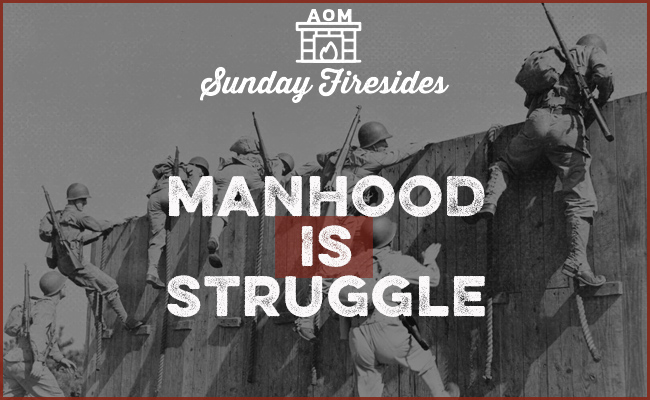The exploration of manhood, might, and militarism within the context of Baha’i teachings provides a unique lens through which to examine the evolving roles of men in society. Baha’i principles encourage a re-evaluation of traditional notions of masculinity, advocating for a more holistic understanding of individual and collective strength that transcends mere physicality and dominance. This reflection aims to unearth the transformative potential of Baha’i teachings in cultivating a new paradigm of manhood—one that embraces compassion over conflict, and collaborative might over militaristic bravado.
At its core, the Baha’i Faith posits that humanity is inextricably linked, founded upon the principle of oneness. This foundational belief mandates a comprehensive rethinking of how manhood has historically been defined. Traditionally, masculinity has been associated with attributes such as aggression, assertiveness, and a propensity for militarism—concepts that have often resulted in societal discord and injustice. Baha’i teachings, however, assert that true strength lies not in the physical exertion of power but in the capacity for love, understanding, and unity. This offers a salient shift in perspective that invites deeper inquiry into the essence of manhood.
The first essential attribute that Baha’i teachings associate with a genuinely masculine identity is that of service. The Baha’i writings emphasize the importance of service to humanity as a paramount virtue. This understanding subverts traditional militaristic notions of manhood by framing the role of men as protectors and nurturers rather than aggressors. In this light, service becomes a manifestation of strength—a strength rooted not in the capacity to dominate, but in the willingness to uplift and empower others. As such, manhood is transformed into a pursuit focused on bettering the world, where the cultivation of moral character is regarded as a supreme duty.
The concept of might, too, undergoes a profound metamorphosis within the Baha’i framework. Baha’u’llah, the founder of the Baha’i Faith, elucidates that the might of man should not be wielded as an instrument of oppression, but rather as a catalyst for global harmony. This teaching beckons men to internalize the idea that true might is demonstrated through the instigation of peace and reconciliation. Militarism, often lauded as a manifestation of bravery, is critiqued as an antiquated relic that conflicts with the forward-thinking ideals of a new world order envisioned in Baha’i doctrine. The emphasis on spiritual and moral strength, therefore, encourages men to seek alternatives to violence—solutions that foster unity and understanding rather than division.
Moreover, the imperative of justice stands central within Baha’i teachings, challenging the archetype of the militarized male hero. Justice, as defined in the Baha’i Faith, transcends the simplistic binaries of right and wrong, urging men to engage in a sophisticated moral reasoning that acknowledges diverse perspectives. This framework implores men not only to eschew militaristic approaches to conflict but to actively embody the principles of fairness and equity in their interactions. In doing so, they become advocates for social change and instruments of societal progress, creating pathways toward resolving the complex issues inherent in contemporary conflicts.
The spiritual maturation of men, as envisioned by Baha’i teachings, necessitates the cultivation of emotional intelligence—a quality historically underestimated in traditional constructs of masculinity. Emotional intelligence encompasses self-awareness, empathy, and the ability to navigate interpersonal relationships with compassion. By fostering these attributes, men can confront the traumas embedded in militarism and aggression, ultimately liberating themselves from the shackles of archaic gender norms. In this context, men are encouraged to express vulnerability, to seek healing, and to forge connections grounded in mutual respect and understanding.
Equally significant is the Baha’i emphasis on education as a transformative force in the development of manhood. Education is not merely a means to an end; it is a powerful instrument that enables the questioning of preconceived notions of masculinity and the exploration of one’s purpose. Informed by Baha’i teachings, educational pursuits can lead to greater awareness of the inequalities perpetuated by militarism and an understanding of the systemic changes necessary to address these issues. This pursuit of knowledge cultivates a sense of responsibility, compelling men to engage actively in the betterment of their communities.
The Baha’i perspective on manhood culminates in a call for men to embrace their roles as agents of transformation in both their personal spheres and the larger societal landscape. By redefining strength as the ability to extend compassion and pursue justice, men are summoned to challenge prevailing militaristic ideologies. They are invited to embark on a journey toward a more enriched understanding of their identity—one that is aligned with the core principles of the Baha’i Faith: unity, peace, and service to humanity.
In conclusion, the exploration of manhood, might, and militarism through the prism of Baha’i teachings unveils a compelling vision for a reimagined masculinity. It champions an approach founded on service, justice, emotional intelligence, and education, which collectively set the stage for a profound transformation in societal norms. In wrestling with these teachings, men are urged to consider their responsibilities not only as individuals but as integral parts of a collective whole. Therefore, the adoption of these principles heralds the dawn of a new era in manhood—one that prioritizes peace and fosters genuine understanding among all members of the human family.
